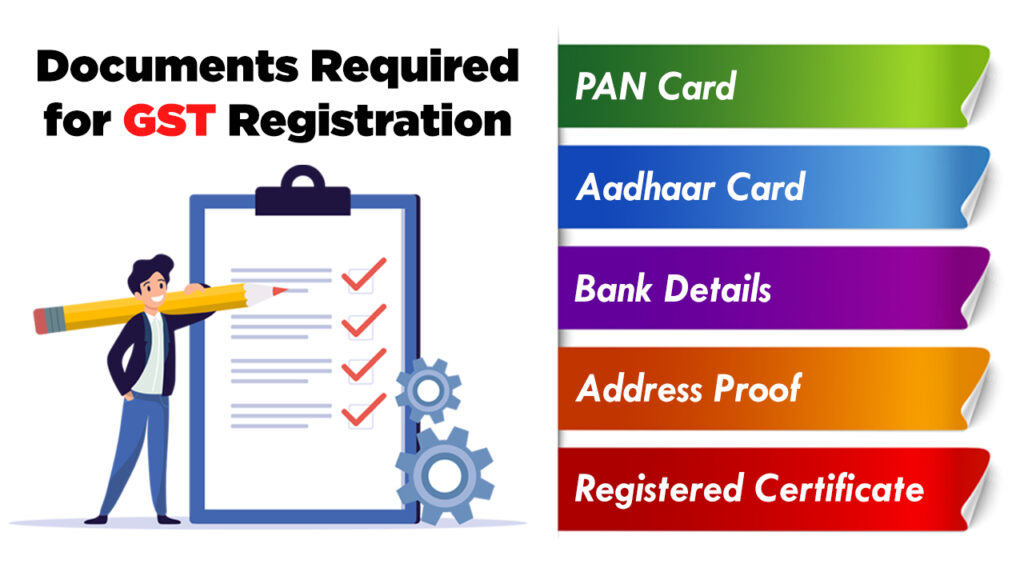Singapore GST Registration: What You Required to Know Prior To Applying
Singapore GST Registration: What You Required to Know Prior To Applying
Blog Article
The Ultimate Guide to Simplifying the GST Enrollment Process and Needs for Local Business Owners

Recognizing GST Fundamentals
To comprehend the basics of the Product and Services Tax (GST) system, tiny organization proprietors should first understand its underlying principles and implications. GST is a value-added tax levied on many products and services for domestic intake. It intends to simplify the taxes procedure by changing several indirect taxes imposed by the state and central federal governments. Under the GST regimen, businesses are required to register and accumulate tax obligation on part of the government, ensuring transparency and compliance.
One of the vital concepts of GST is input tax credit, which permits services to claim credit report for taxes paid on their purchases. This mechanism protects against the cascading result of taxes and advertises efficiency in the tax system. Furthermore, GST is a destination-based tax obligation, implying that the tax obligation is imposed at the factor of consumption as opposed to the factor of beginning. This guarantees reasonable circulation of tax income amongst states based upon where the services or products are eaten. Recognizing these basic principles is vital for small company owners to browse the intricacies of the GST system and make certain conformity with the legislation.
Eligibility Criteria for Registration
Having actually established a fundamental understanding of GST concepts, small organization proprietors need to currently fulfill specific eligibility criteria to continue with the enrollment process (Singapore GST Registration). Businesses that were signed up under the previous tax regime (VAT, service tax, and so on) are likewise mandated to sign up under GST. Farming businesses that only supply create out of primary production are excluded from GST registration.
Papers Required for GST Enrollment

Simplified Registration Process Actions
Complying with the collection and confirmation of the requisite papers, the registration process for GST can be browsed via a collection of simplified steps made to help with reliable conformity for small company proprietors. The very first step includes visiting the GST website and choosing the 'New Enrollment' alternative. Ultimately, the applicant should load in Component A of the GST REG-01 form Bonuses with details such as frying pan, mobile number, and e-mail address to get an OTP for confirmation. Once the OTP is gotten and gotten in, a Temporary Reference Number (TRN) is created for additional proceedings. The next action needs submitting Component B of the kind with essential company details, submitting sustaining papers, and completing the verification process using DSC or EVC. Lastly, upon effective confirmation, an Application Referral Number (ARN) is issued, showing the conclusion of the GST registration process. By complying with these simplified actions, small company owners can efficiently sign up for GST and guarantee compliance with tax obligation laws.
Tips for Ensuring Compliance
To maintain regulatory adherence and functional stability, thorough oversight and positive measures are pivotal in ensuring conformity with GST demands for small business owners. Little business proprietors need to stay upgraded with GST guidelines, filing target dates, and any type of modifications in tax obligation prices to avoid fines and keep a great standing with tax authorities. One essential pointer for conformity is to keep exact and in-depth documents of all deals, including expenses, invoices, and billings associated to GST. On a regular basis integrating financial records with GST returns can assist in recognizing and rectifying any disparities without delay. In addition, performing periodic interior audits or seeking professional assistance can make sure that business is complying with all GST regulations properly. It is also critical for local business owners to buy GST-compliant accountancy software program that can improve the tax declaring procedure and minimize errors. Last but not least, attending GST awareness workshops or training programs can improve understanding and conformity with GST laws, ultimately benefiting the company in the lengthy run.
Verdict
To conclude, little company owners must recognize the essentials of GST, satisfy the eligibility criteria, collect essential documents, and follow the simplified enrollment process steps to make certain conformity. By simplifying the GST registration process and requirements, tiny service proprietors can prevent penalties and operate their businesses smoothly within the lawful structure - Singapore GST Registration. It is vital for little service owners to stay compliant and enlightened with GST regulations to keep an effective business procedure
Tiny check my site service owners seeking GST registration need to ensure they collect and submit the essential files to finish the registration procedure effectively. The documents required for GST enrollment generally consist of proof of organization enrollment or incorporation, PAN (Permanent Account Number) card of the service identity, entity and address evidence of the promoters/partners/directors, photographs, address look at this web-site evidence of the place of company, bank account declarations or terminated cheques, and consent kinds. Attending GST understanding workshops or training programs can boost understanding and compliance with GST policies, inevitably profiting the company in the long run.
By streamlining the GST enrollment process and requirements, little service proprietors can avoid penalties and operate their services efficiently within the legal framework. It is vital for tiny business owners to stay educated and certified with GST laws to maintain a successful company operation.
Report this page